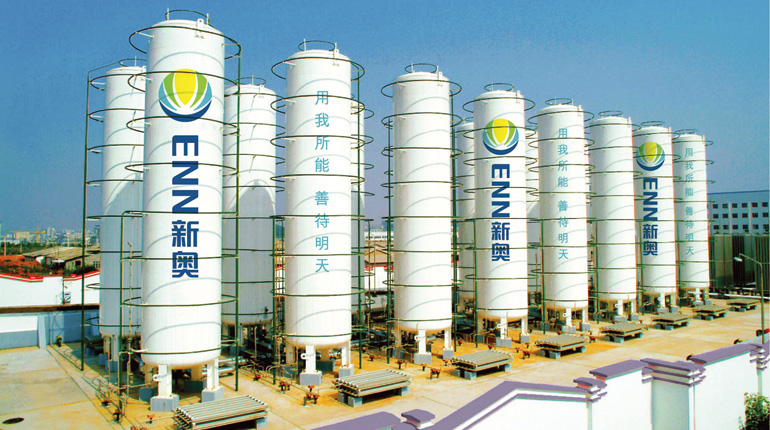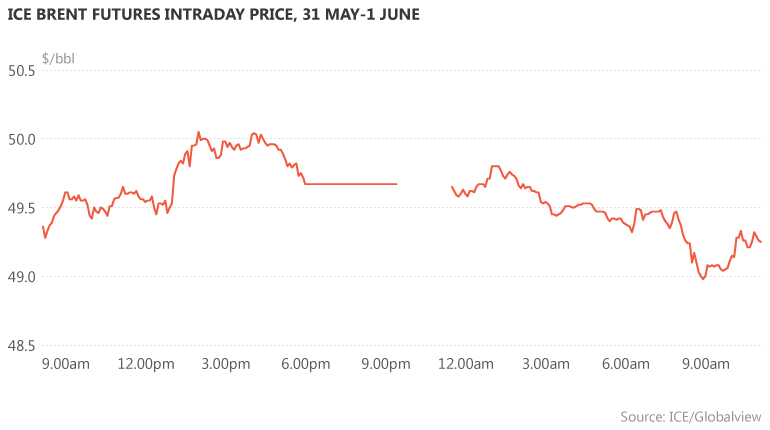 ENN has said its tariffs are negotiated commercially with customers, and it is happy to comply with the SAIC. (ENN)
ENN has said its tariffs are negotiated commercially with customers, and it is happy to comply with the SAIC. (ENN)
China’s biggest city gas distributors have told Interfax Natural Gas Daily they are confident they will not be caught up in a crackdown on anticompetitive practices in utility markets, which will include the city gas sector.
Market abuse and monopolistic practices are rife in gas, power, water and other utilities, China’s State Administration for Industry and Commerce (SAIC) said in a circular dated 7 April but not widely noticed until recently. The agency will conduct "special enforcement action" from April to October, according to the circular.
City gas accounted for 40% of the 191 billion cubic metres consumed by China in 2015, according to an annual report from China National Petroleum Corp.’s Economics and Technology Research Institute.
The sector is dominated by a handful of operators such as ENN Energy Holdings, China Gas Holdings and China Resources Gas (CR Gas). Local government-owned companies control the top-tier markets, such as Beijing and Shanghai.
"China Gas has been following the industry’s rules and regulations to carry out business in the past, hence there shouldn’t be impact on us," said company spokesperson Frank Li.
"As a public utility company, the gas-related tariffs we are charging users are audited and approved by local pricing bureau and negotiated commercially with our customers. We are happy to cooperate with relevant departments in their investigation and to ensure our operations comply with their latest regulations," said ENN Energy Investor Relations Representative Shirley Kwok.
City gas crackdown
Anticompetitive behaviour in city gas tends to affect big industrial and commercial users because of the outlay needed to connect them to the gas grid, said Li Yanqiang, deputy general secretary of the China Gas Society.
"Most of the time, city gas operators prefer to pass costs onto customers that they should be absorbing themselves. That’s what SAIC is probing," said Li.
Although the SAIC announcement talked of anticompetitive and monopolistic practices, the real issue is over "unethical and abnormal fee charges by operators", said CR Gas Chief Financial Officer Ken Ong Thiam Kin. China has nearly 100 city gas distributors in more than 600 cities, according to Ong.
The SAIC gave several examples of anticompetitive behaviour in utility sectors, such as ‘tying’ – when buyers wanting one product are forced to buy a second product. Another is forcing users to accept designated operators to provide services, such as installation or engineering, or to buy insurance and other unnecessary items.
Compulsory charges disguised as ‘minimum’ costs are also levied on unsuspecting customers in the form of deposits or prepayment.
The SAIC’s probe could help regulate the city gas sector and protect users. Local SAIC branches have already been actively investigating and some city gas distributors could face sizeable financial penalties.
In a recent case, the SAIC’s arm in Shandong province fined Qingdao ENN Xincheng Gas, a subsidiary of ENN Energy, RMB 6.82 million ($1.03 million) for abusing its dominant market position in Qingdao’s Chengyang district. In 2010, the subsidiary started requiring non-residential customers to make certain prepayments, but it refused to allow the prepayments to be used to pay down gas bills.
Xincheng Gas only returned the prepayment money to its users after they stopped taknig gas, according to the administrative punishment handed down in March but only made public on 17 May.
Xincheng Gas denied service to users who refused to make the prepayment, according to the decision. The company collected a total of RMB 8.99 million in prepayments from 209 commercial and industrial users. It began to return the money to users under the guidance of SAIC’s Shandong branch in March 2015.
Xincheng Gas argued that upstream gas suppliers requested the prepayments. "The case showed some companies don’t want to divert their own free capital, which was refuted by SAIC [which said] that they shouldn’t shift operation pressure to downstream customers," Li said.
The SAIC’s Chongqing branch fined Chongqing Gas Group RMB 1.79 million in April 2014 after the Shanghai-listed distributor was found to be ignoring meters when charging non-residential users in 2008-2010.
A separate case in neighbouring Sichuan alleges Ya’an Gas forced 3,865 users to upgrade to smart gas meters costing RMB 320 each, under the threat of service termination. The Sichuan arm of the SAIC said it will continue to investigate the case.
Industry experts said some of the misconduct can be traced back to China’s adoption of franchising for the city-gas sector. Local governments frequently award franchise agreements to city gas distributors lasting 20-30 years, which allows the governments to protect their investment interest but stymies competition.
"Franchising has made it difficult for us to enter local markets," said Xie Dan, deputy general manager of Sinopec Gas Co. A source at China National Offshore Oil Corp. (CNOOC) echoed the view, adding CNOOC has faced the same problem in some cities – even though it was selling LNG and therefore not in direct competition with piped city gas.







Talk to us
Natural Gas Daily welcomes your comments. Email us at [email protected].